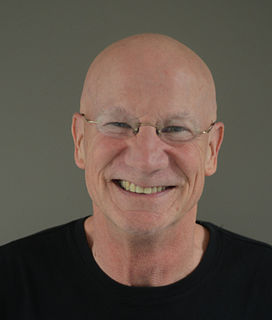A Quote by Jonathan Gottschall
The average daydream is about fourteen seconds long and we have about two thousand of them per day. In other words, we spend about half of our waking hours - one-third of our lives on earth - spinning fantasies.
Related Quotes
My average fan works for about $20 per hour, if they are lucky enough to have a job. And then factoring in insurance, taxes and such, they're maybe bringing home $15 per hour. If my tickets are just under $30, it took them about two hours of their life to make the money to come see my show. Why shouldn't I give them two hours too?
If the estimated age of the cosmos were shortened to seventy-two years, a human life would take about ten seconds. But look at time the other way. Each day is a minor eternity of over 86,000 seconds. During each second, the number of distinct molecular functions going on within the human body is comparable to the number of seconds in the estimated age of the cosmos. A few seconds are long enough for a revolutionary idea, a startling communication, a baby's conception, a wounding insult, a sudden death. Depending on how we think of them, our lives can be infinitely long or infinitely short.
Do you think I could bear to live on after you died? Oh, Lyra, I'd follow you down to the world of the dead without thinking twice about it, just like you followed Roger; and that would be two lives gone for nothing, my life wasted like yours. No, we should spend our whole lifetimes together, good long busy lives, and if we can't spend them together, we... we'll have to spend them apart.
If you think about work, it's just this endlessly fascinating subject. We spend at least half of our waking hours working. So it becomes this incredible window into a whole variety of things: who we are human beings, how the economy works, how people relate to each other, how stuff is made, how the world spins on its axis.
Seeing ourselves as we want to be is a key to personal growth. To successfully bring about change in our lives we need to implement a system of change that is build upon three assumptions. First Assumption: We change our lives by changing the attitudes of our minds. Second Assumption: We become what we think about all day long. Third Assumption: Our mind is naturally goal seeking. Please remember these assumptions. Our mind is always trying to accomplish something. We have a powerful machine wanting to achieve goals. It will set the goals that we allow it to.
It is better to allow our lives to speak for us than our words. God did not bear the cross only two thousand years ago. He bears it today, and he dies and is resurrected from day to day. It would be a poor comfort to the world if it had to depend on a historical God who died two thousand years ago. Do not, then, preach the God of history, but show him as he lives today through you.
Encourage others each and every day-nothing's more important than our words. Did you know that, on average, each of us speaks about twenty-five thousand words daily? My last book didn't have that many words. A lot of language is flowing out of our mouths every day and having an impact on those around us. But how much of that flow is fulfilling God's intended purpose for our speech? How much of it reflects pride, rather than a gospel-motivated humility?
If I feel like crying, I'll just cry in a dream. Something I really try not to do in my waking hours. I like good melodrama because it's just an undumping of all these compulsions we feel that we work so hard to master during our waking hours. No wonder we crash to sleep in bed at night. We have to, otherwise we'd just spend our waking hours shredding the feelings from everybody else.

































